Elephants need the wilderness to survive.
As people, we are not separate from elephants or the dams they swim in to cool down or the trees they stand under for shade. We need to invest in the wilderness, in biodiversity and our ecosystems to provide a sustainable home for elephants on earth.
Across the African continent, we are fortunate to still find some of the world’s last remaining wildernesses – land where elephants and other wildlife roam: stretches of open plains, grassy fields, natural bush, thickets of trees, waterholes and rivers. But this land has been neglected and is under threat from climate change and human overpopulation. We can’t protect wildlife without protecting nature.
We appeal to you to help us to do just that.
Help us to save the elephants’ home with the GlobalGiving Matching Campaign, Little By Little on 12-16 September 2022. This is a chance to make a big difference with only a little donation. And we’re dedicating it all to the elephants’ wilderness.
GET MATCHED!
Donate only during from September 12, 2022, 00:00:00 EDT and September 16, 2022, 23:59:59 EDT and get matched! We will share the link on Monday, 12 September.
During the Little by Little campaign, all eligible donations up to $50 USD per unique donor per organisation will be matched at 50% for the duration of the campaign. Donations above $50 USD will be matched on the first $50 USD.
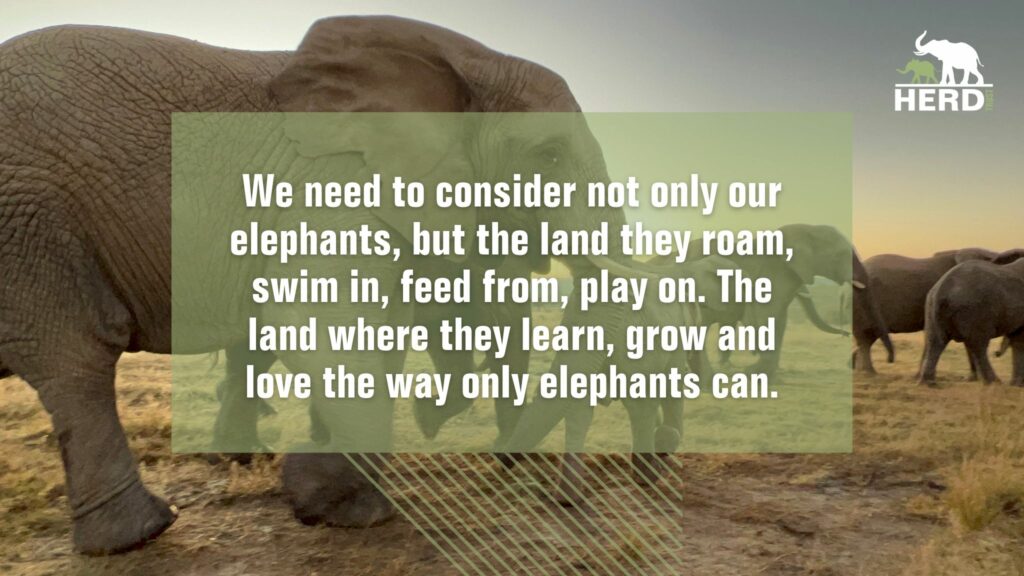
According to the United Nations, the global human population will reach 8.0 billion in mid-November 2022 – rising from an estimated 2.5 billion people in 1950. This overpopulation has caused disastrous effects on our natural world, with humans encroaching on the little land left for our elephants and other wild species. Elephants have been pushed out of their natural habitats or had their corridors cut off by fencing due to human development… people turning wild spaces into urban areas and pulling up and polluting those plains, fields, bushes and trees that are so vital for life. Going a step further, humans threaten the last elephant populations through acts of illegal ivory poaching or bushmeat poaching, killing off herds, breaking up families, creating orphans, traumatising snaring survivors, and ending a species little by little.
Climate change also poses a massive challenge to the diminishing habitats that are still able to sustain elephant life. An article in the Washington Post recently, in August 2022, reported: “As Kenya battles its worst drought in four decades, the crisis is killing 20 times more elephants than poaching. They cite desiccated carcasses found in Tsavo National Park, where much wildlife has fled in recent years in search of water.”
“To survive, elephants require vast landscapes for foraging. Adults can consume 300 pounds of food and more than 50 gallons of water a day. But rivers, soil and grassland are drying up, resulting in a barren and deadly environment. In the last year, at least 179 elephants have died of thirst, whereas poaching has claimed the lives of fewer than 10, Kenyan Tourism and Wildlife Secretary Najib Balala told the BBC. ‘It is a red alarm,’ he said of the crisis.”
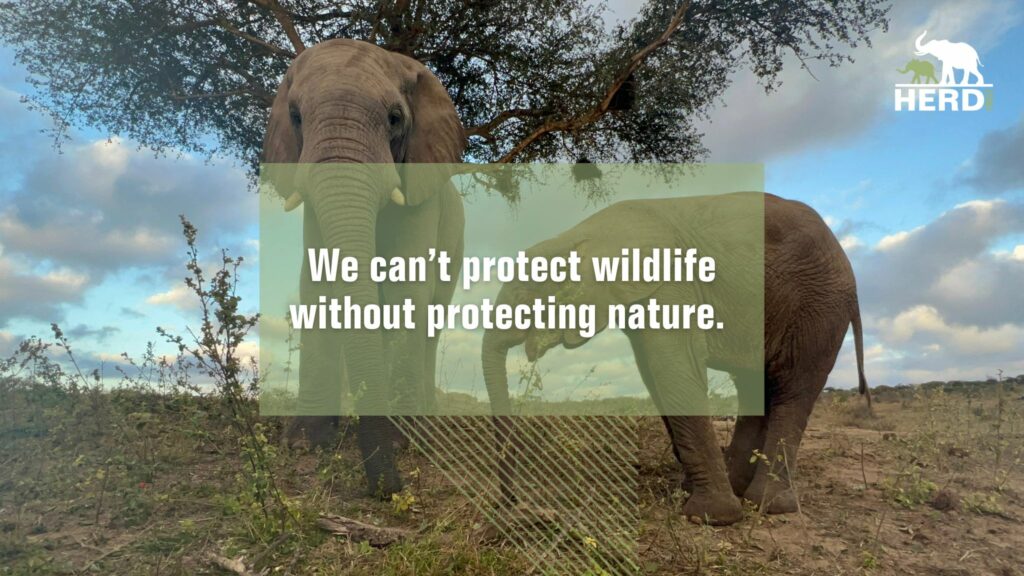
Without corridors allowing elephants in drought-stricken areas to migrate to areas with water, elephants are forced into horrid deaths. South Africa is at risk of drought and climate change’s impact, and without proper land management, we also face the problems hitting Kenya currently. This adds extra pressure to our endangered elephant species.
We need to implement ways to reduce our human footprint and the effects of climate change and to work to heal and restore rather than take from and undermine our natural world. We need to consider not only our elephants but the land they roam, swim in, feed from, play on. The land where they learn, grow and love the way only elephants can.
For us at HERD, it is essential that we tend to the land where the elephants traverse regularly. Our land project involves the rehabilitation of the environment and preventing and reducing the impact of the rescued elephants on the land around the orphanage and homestead. In phase 1 of our land project, we restored 50 hectares of land, and we aim to cover the same area in Phase 2. We have yet to meet our financial target to proceed with Phase 2. To let just one year pass without restoring the land the elephants traverse can be extremely detrimental to the environment.
Our plan includes removing encroaching tree species and alien or invasive plant species, and reusing plant matter for veld management techniques like Brush-Packing. Indigenous grass seeds will be used to speed up restoration. The soil will be prepared using a tractor and elephant dung compost will be added for nutrition. Branches removed through clearing will form a protective mattress over the soil. Indigenous trees will be planted around them to protect the branches from being pushed over.
The long term impact of our project includes the regeneration of essential elements to help the environment thrive, as well as to manage corrosion and to ensure a greater diversity and growth of plants and trees. This will help restore balance in grazing areas. It is vital to help ensure the longevity of the conservation as well as the health and well-being of wildlife grazing in these areas, especially for the elephants in our care.


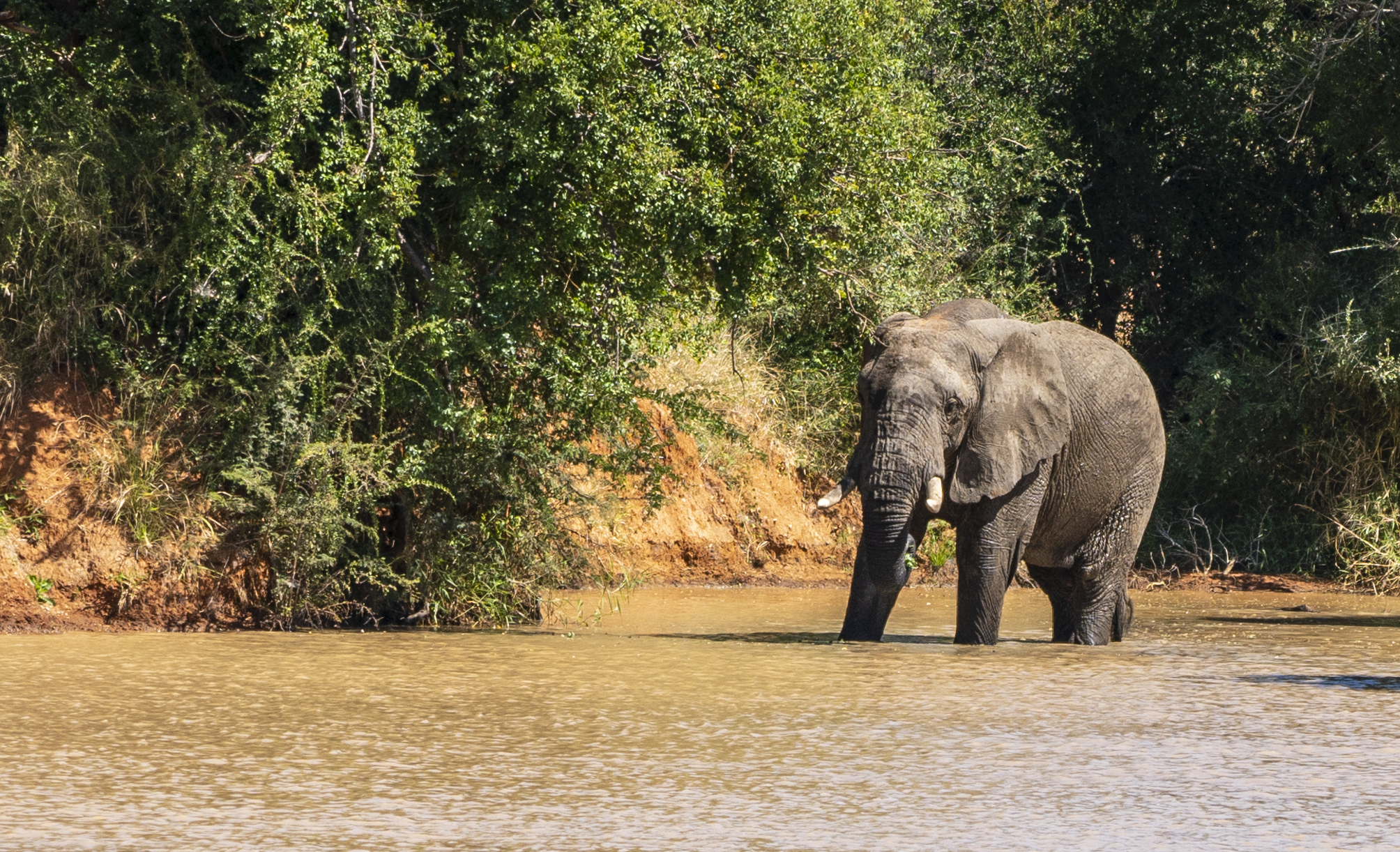
 Comment
Comment


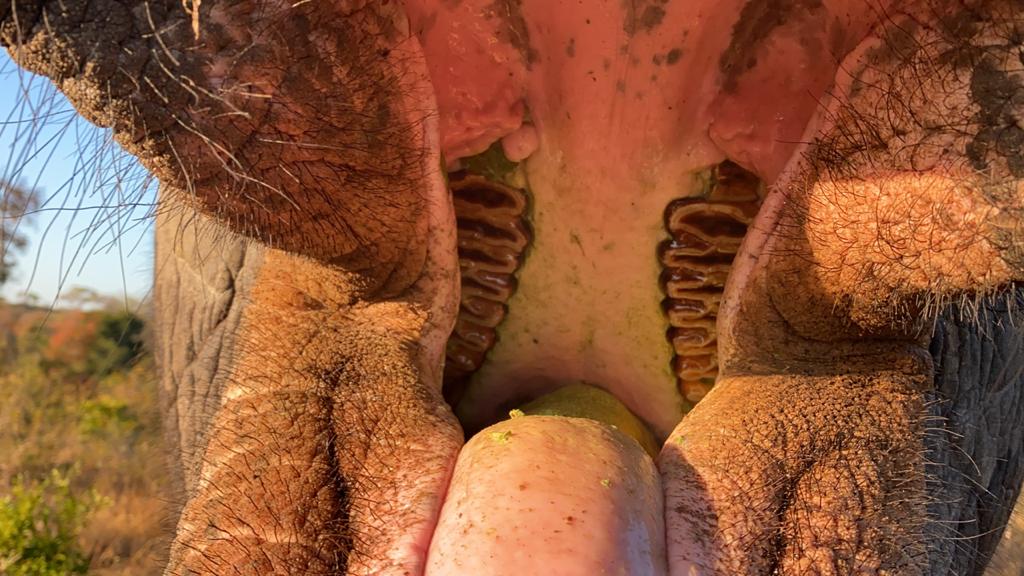



Your Government needs to quit pocketing the money and start caring about their citizens and animals too. Even humans are dying from starvation in African areas where there is no food for them. That breaks my heart and basically the same going on here in the US too which irritates me. I will definitely keep the elephant and all animals of Africa I’m my prayers and if I could help you I surly would but unfortunately I can’t. I love your Elephants so much and it would break my testy if God forbid something happened to any of them because of starvation or even poaching too. All animals are important like humans but there is way too much greed in the world where the Rich keep getting richer and the poor keep getting poorer. God bless you at the Orphanage and all the elephants and other wild animals too. Hugs, love, and blessings to you always! Sue Florida, USA ❤️🙏🏻😘🐘❌⭕️
🙂 Thank you for your care!!